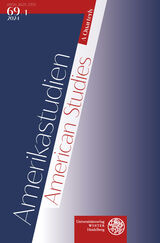Author: Winfried Fluck
- «
- 1
- »
The search returned 5 results.
Nachruf auf Professor Dr. Ursula Brumm (1919-2015) Editorial open-access
Crime, Guilt, and Subjectivity in Dreiser, Mead, and Lacan Beitrag open-access
Introduction Beitrag open-access
Fiction and the Struggle for Recognition Beitrag open-access
- «
- 1
- »
